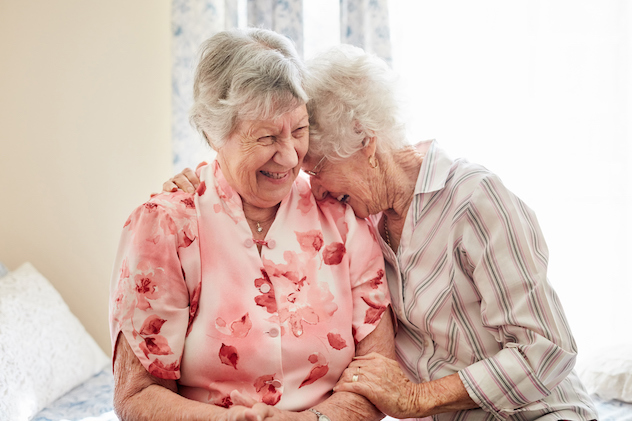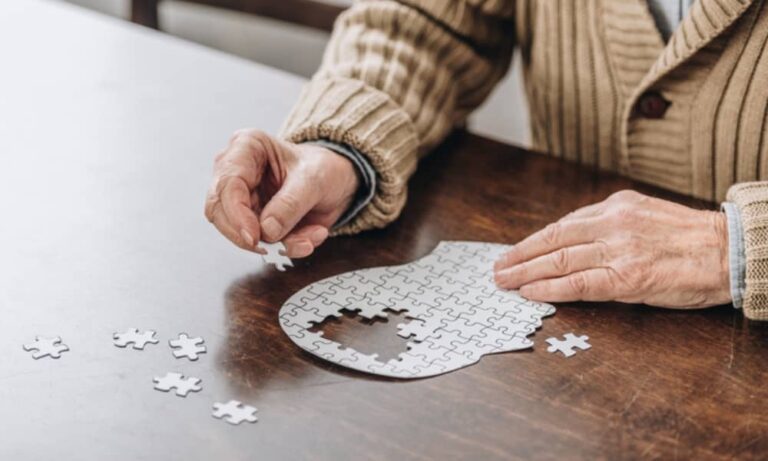Stop grumbling about getting older – it just may add seven-and-a-half years to your life. We’re told that if we want more good years, get plenty of sleep, eat well, exercise and learn something new.
But many of us don’t realise that a positive attitude can make us live longer, according to Yale professor Becca Levy and colleagues in a paper published in the Journal of Personality and Social Psychology. Dig a little deeper and their research found that the more positive older individuals were about ageing, the greater the will to live, which contributes to a longer life.
Do we want to live to a very old age? For many, ageing, like winter weather, does not comfort us. In modern society, youth, beauty and productivity is what counts. From a young age, we’re told that grey hair and wrinkles are bad, that we’ll become very sick: frail, suffering from dementia, a burden on society. Around middle age, we start to feel the physical and mental decline conveying a sense of the ultimate outcome: death. We internalise the negative stereotypes, accepting them as the truth. We risk becoming who we think we are: frail, boring and irrelevant, just marking time until death.
How do older people stay positive and relevant in their later years?
Professor Perminder Sachdev, co-director of UNSW Sydney’s Centre for Healthy Brain Ageing, says there are personality characteristics that help older individuals age well. “They are conscientious and committed to carrying out their duties carefully. They are low in neuroticism – that is, they are less reactive to emotionally stressful events and better able to cope with uncertainty and hardships. It’s even better if they are high in extraversion – they are more outgoing and socially interactive.”
Optimism and resilience are key attributes for older people who are coping with hardships but still actively engaging with life, says Sachdev. “Older people are not in prime health. Illnesses will start to creep in. But it is not the freedom from disease that is important. It’s the self-belief that despite any hardship, they will be able to achieve their goals. Those who are optimistic will attend to the hardship and acknowledge the positive.” They pay attention to information about their medical condition, they get medical treatment and do whatever exercise has been prescribed for them. The medical condition becomes part of the journey as they learn how to get back on their feet and move out into the world.

Social animals
Older individuals who are optimistic also tend to actively engage with the world. With children no longer their responsibility and no work deadlines, they look after their health and cardiovascular fitness. In a 2012 paper published in Ageing Health, author Christopher Peterson and colleagues wrote that optimistic individuals who expect good things to happen tend to behave positively: they eat more sensibly; they exercise; they refrain from drinking and smoking and seek medical care in the belief that it will make a difference to their long-term health. The authors noted a large body of research linking optimism to better immune system functioning, quicker wound healing, healthier blood pressure levels and healthier regulation of cortisol. In a 2019 paper, published in JAMA Network Open, authors Dr Alan Rozanski and colleagues found that optimism is associated with a lower risk of cardiovascular disease.
Sachdev says that resilience in older people, along with optimism, means they don’t dwell on their failures and setbacks. “They focus on their capabilities and are disciplined in mastering new skills and engaging productively with society – a new hobby, an encore career, volunteering, mentoring younger individuals. And with experience in loss and trauma, they are able to reframe their adversity in a more positive light. They become less reactive to negative stimuli and start to see the emotional meaning to life, building strong and intimate connections with their family and the community.”
We are social animals. We are wired to belong. If older individuals are looking forward to a rich and full life, they start to appreciate that relationships are the key to a happy and meaningful life. They want to share positive experiences with family, friends and their social networks. They are loving caretakers and sturdy role models. They join a group with a shared passion such as painting, photography, singing in a choir, volunteering for a charity; they seek guidance and support from their religious or spiritual community. When we are socialising, we are feeling, sensing, reasoning, learning. Friendships contribute to our cognitive reserve. A 2010 meta-analysis of 148 studies, tracking 300,000 people for nearly eight years, found that socially connected people live longer. On the flip side, social isolation is associated with a loss of cognition, depression and Alzheimer’s disease.
Age is mind over matter. If you don’t mind, it doesn’t matter. – Mark Twain







